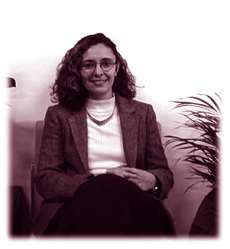Associate Provost Güliz Ger has been a member of Bilkent's Business Administration Faculty since 1986. While teaching she has amassed an extensive record of publications on consumer behavior, culture, and consumption. During the fall semester of this academic year she was promoted to the post of Associate Provost, where she will assume responsibility for academic affairs and first-year curriculum. Bilkent News interviewed Dr. Ger about her new post, its challenges, and changes in progress.
 Your professional philosophy is that "managers have to be creative and be able to make bold, systematic and effective decisions." Do you advocate the same approach as an administrator as well? Can you give us an example of one of your priorities in that regard?
Your professional philosophy is that "managers have to be creative and be able to make bold, systematic and effective decisions." Do you advocate the same approach as an administrator as well? Can you give us an example of one of your priorities in that regard?
The mandate that Rector Doğramacı has stated for the first year curriculum is a good example of that: it overlaps with my philosophy of teaching and thinking. People pursue careers that do not always coincide with their field of study at the university. Bilkent aims to prepare students for life in addition to their profession. Bilkent will make significant moves in that direction in the next few years.
Can you elaborate on the aims of this approach and what kind of courses will be offered as electives for all students?
The aims can be summarized as follows: to give students a broad-based education embracing many disciplines that will improve awareness of environmental, global, and social problems and help them develop aesthetic and ethical values. This will lead them to become tolerant and open-minded people. With the new first-year curriculum we are aiming at developing critical thinkers and research-oriented creative individuals with constructive ideas and innovative solutions to problems.
We already have some courses that serve that aim and I strongly encourage students to seize that opportunity and take these available courses this semester (see the full list of these courses inserted in this week's Bilkent News).
You received the 1997 Distinguished Teaching Award at Bilkent, and your teaching philosophy is that "Interaction with students is very important. The classroom is a studio, not a stage." How about your administration office? Would you say the same thing for administration?
Absolutely. The administrators should be equipped with the knowledge and experience to do it, i.e. turn your office into a studio, not a stage. I definitely advocate an interactive model in administration, and I hope I will be able to. I believe that the support I am given in this position has a potential to implement this.
Is it liberating or limiting to be a top administrator?
Both. It is limiting in my research agenda. For me research is not work, it is my livelihood; with this position I can't read and write as much as I used to.
Liberating because you see a potential of doing things. It is too early to say whether it can be achieved or if I can achieve it or not.
Your field, business administration, is a male-dominated discipline. You studied and taught in the U.S., and you also taught in Denmark and France. How does it feel to be a woman in a man's world in all these countries and Turkey?
In many situations I'm the only woman in the room. I find it easier to function in Turkey because education is very important in Turkey, and therefore professional identity takes over your gender identity.
Life is about interactions; if you are keen about particular dynamics and particular situations, interactions become easier. Such interactions are much easier in Scandinavia but more macho-centric in Europe. The French: the moment you step in you hear a comment because you are a woman. In the U.S. they are very uptight about it. Although they try to be politically correct, it is rhetoric. I am a spontaneous person, I behave, be, and do. I don't see myself as a feminist person; I do not want to divide people into categories by their ethnicity, gender, or color. When you talk about those issues people become very defensive and that creates more animosity; I'm not denying that it's not easy for women; what I'm saying is that what you do is more important.
What is your message to the students and faculty from this office?
Don't get discouraged when there are barriers in front of you. I don't see things as either zero or one. Every step can be a step forward. When we have this kind of a mindset, then we can be more constructive in our actions.








